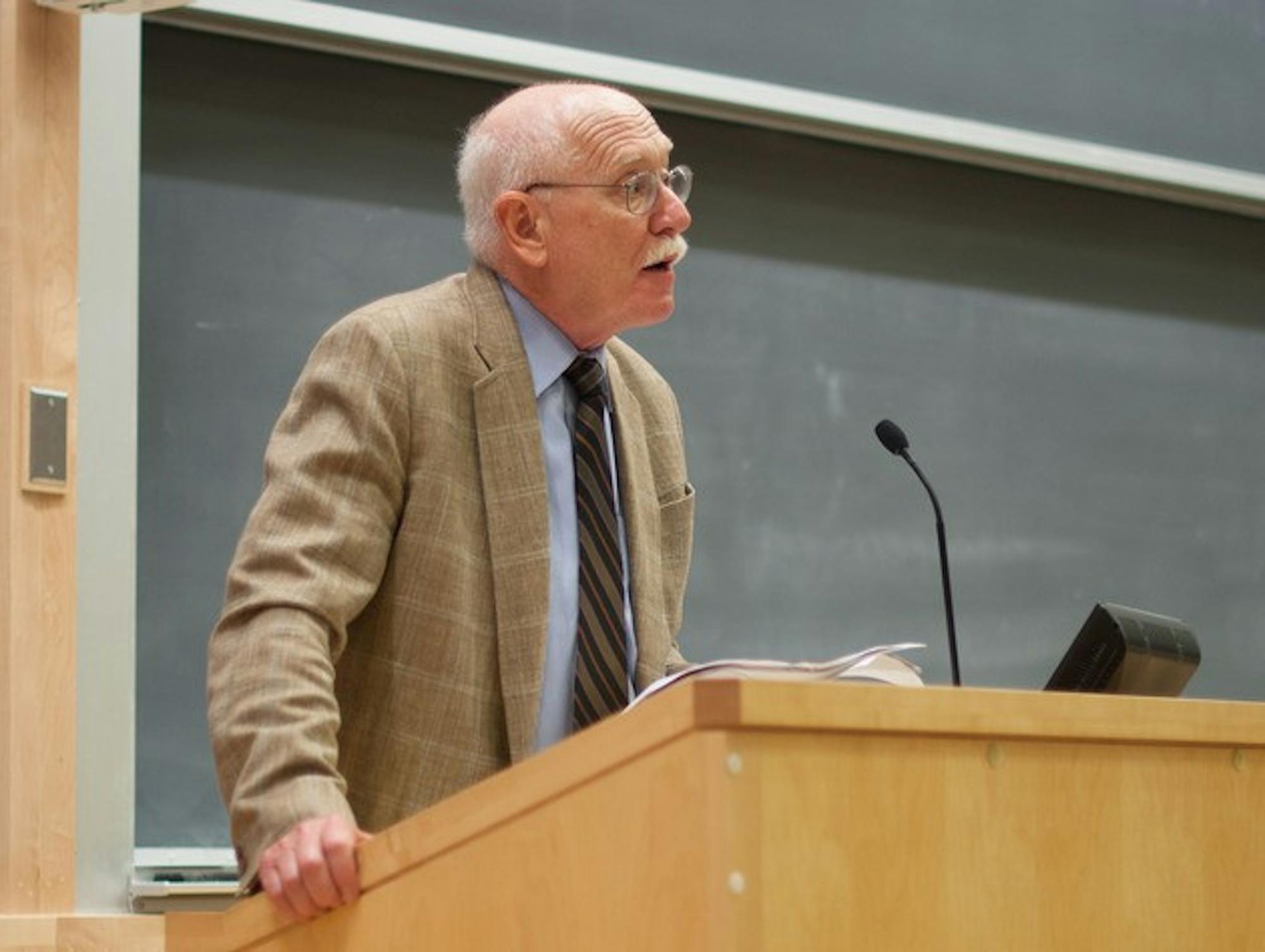He shared his concept of "hauntology," the study of personal stories that are part of the more intimate life of medicine rather than its rational practices, and spoke about the need for the emerging field of medical humanities.
"Medicine is all about the stories," he said.
Doctors are haunted by stories of their patients, of things gone awry and of things that could have been done. Good noted, however, that there is no room to apply lessons learned from these "ghosts" because end-of-life care is bureaucratized and rational. In hospitals, bodies are quickly removed and all traces of the deceased are cleared away. Failure in medicine is told as a clinical case with the human aspects edited out.
Good cited interviews with medical school students as he pointed to the difficulties that young men and women face as they enter the detached world of the medical field.
"It is my argument here that by recounting these stories, it shows that medicine is a kind of side of haunting, and the medical humanities provide a space for these ghosts," Good said. "There is a deep place for the irrational in medicine."
One student he talked to recalled an experience with a female patient he became close to. When the patient suffered internal bleeding and died during a night when the student was not on call, the student came in the next morning and was taken aback to find the patient's bed empty. None of his coworkers, however, mentioned the patient in anything more than a medical sense. This lack of communication was blindsiding to the student, who was forced to process the death by himself as other doctors pressed ahead with the case, presenting the technical details but ignoring the human that had passed away.
Good pointed out that stories like these serve as clear counterpoints to the medical accounts told during rounds and lectures.
"These complement the formalized narrative, revealing the other side of medicine," Good said. "But seldom do they lead to any serious questioning."
Good concluded that traumatic experiences in medicine are simultaneously kept hidden and made visible, and understanding this complex dynamic requires an interaction between psychological experiences and political processes that a field like medical humanities can provide.
He added that the richest work in a field such as medical humanities comes from sustained conversations among doctors, non-doctors and experts from multiple fields.
Good conceded that hauntology and the role of stories in the medical humanities is a vague concept, even to him.
"I'm coming here with a proposition for a project to work on rather than knowing how to do it," he said.
Colleen Boggs, an English professor and director of the Leslie Center for the Humanities, said this inaugural lecture was the first step toward the goals of the Medical Humanities Interest Group, which seeks to explore ways to understand human experiences such as aging and illness through a medical and a humanistic perspective.
"We're really trying to have a dialogue between medicine and the humanities," she said. "We especially want to start thinking about global connections."
While many of the lecture's attendees were faculty members, there were a number of undergraduate students in attendance.
"I came because I was curious how medicine and the humanities would intersect," Skye Herrick '17 said. "I still don't have a good sense of what medical humanities is, but I thought Dr. Good had some really interesting stories and ideas."
Good's lecture, "Haunted By Stories: Does the Medical Community Need a Hauntology?" was sponsored by the Leslie Center.




